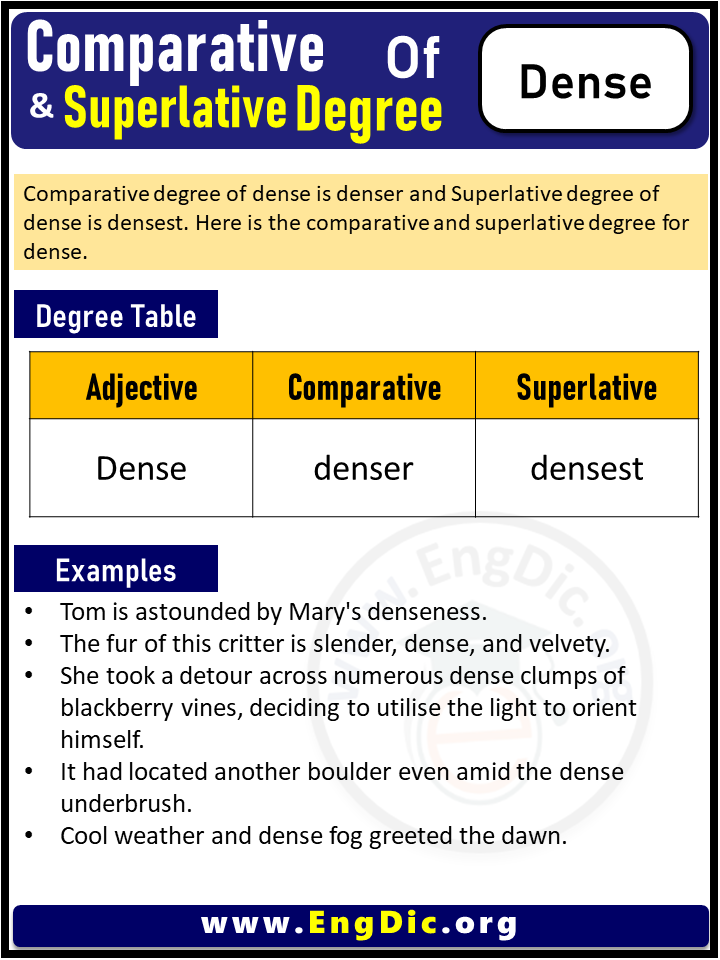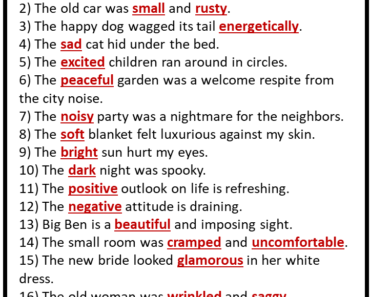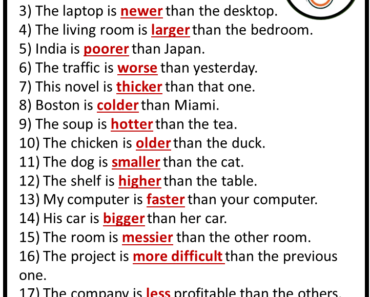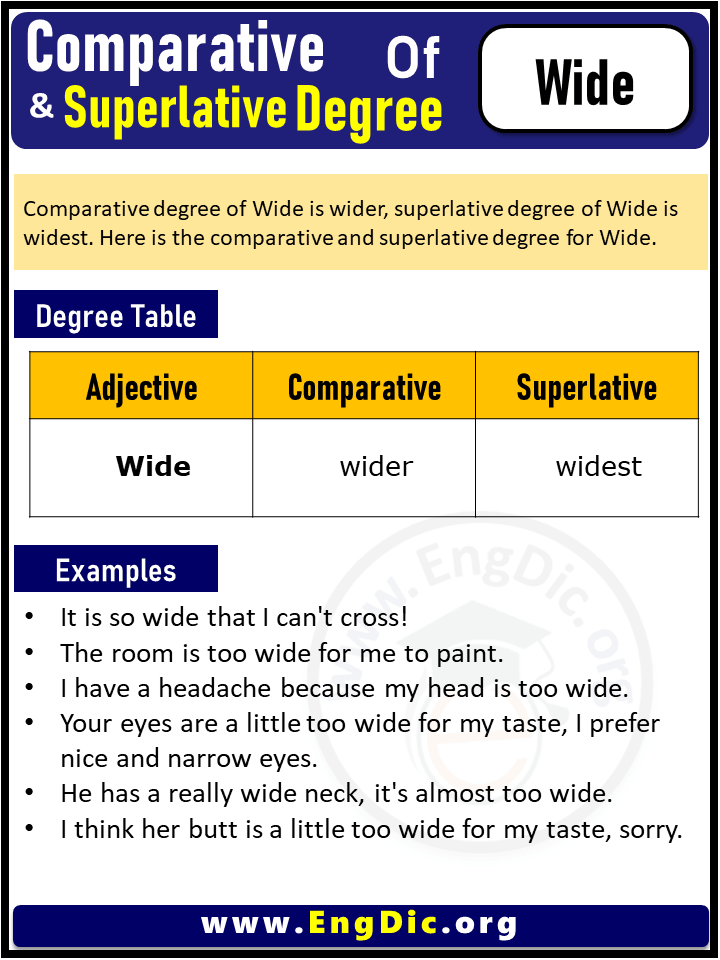Here we are going to discuss adjectives and their types with examples in detail, this lesson is best for students of grade 3 to grade 5 and above.
Must Check: List of 800+ Adjectives
Definition of Adjective
Adjectives are describing words that describe, modify, or give more information about a noun or pronoun. It often provides qualities such as size, shape, color, sound, feeling, taste, age, or condition to the nouns or pronouns, helping to make descriptions more specific or detailed.
For example, in the phrase “a bright sun,” “bright” is an adjective that describes the sun.
Types of Adjectives
1. Proper Adjectives
Proper adjectives are derived from proper nouns and typically start with a capital letter. They often denote something or someone’s origin, nationality, or a specific brand. For instance, “American” in “American culture” is derived from “America.”
- She loves Italian cuisine.
- The Shakespearean play was profound.
- He drives a German car.
2. Descriptive Adjectives
Descriptive adjectives specify the qualities or states of being of nouns, providing details about size, color, shape, etc. They add personality and detail to sentences, like “blue” in “blue sky.”
- The fluffy cat napped peacefully.
- A loud noise startled everyone.
- The ancient tree stood proudly.
3. Quantitative Adjectives
Quantitative adjectives indicate the quantity of nouns, but without providing exact numbers. They answer “how much?” or “how many?” like “some” in “some water.”
- He has enormous strength.
- She has little patience for delays.
- They need more information.
4. Numeral Adjectives
Numeral adjectives provide exact numbers of nouns or their order in a series. They can be cardinal, ordinal, or multiplicative, like “two” in “two apples” or “first” in “first place.”
- Three birds sang melodiously.
- She finished in second place.
- I’ll take four of those, please.
5. Demonstrative Adjectives
Demonstrative adjectives point out specific nouns. They include words like “this,” “that,” “these,” and “those,” providing a clear indication of which thing is being referred to.
- This book is fascinating.
- Those stars seem brighter tonight.
- I prefer these shoes.
6. Distributive Adjectives
Distributive adjectives refer to individual elements within a group, often highlighting how something is distributed, shared, or divided, like “each” in “each student.”
- Each member voiced their opinion.
- Every attempt was unsuccessful.
- Either option works for me.
7. Interrogative Adjectives
Interrogative adjectives are used to ask questions about nouns and are typically found at the beginning of a question. They include “which,” “what,” and “whose.”
- Which route should we take?
- What time is the meeting?
- Whose book is this?
8. Possessive Adjectives
Possessive adjectives show ownership or possession in relation to the nouns they modify. They include words like “my,” “your,” “his,” “her,” “its,” “our,” and “their.”
- My phone is out of battery.
- Her idea was brilliant.
- Their garden is lovely.
Types of Adjectives with Examples – Video
Infographics (Adjectives and its types with Examples)
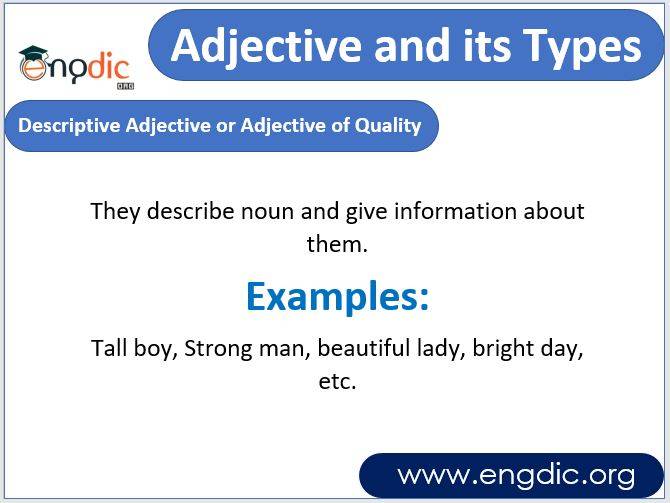
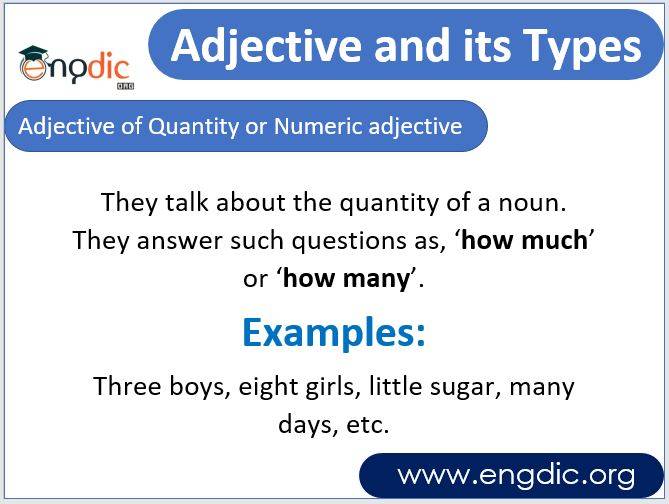
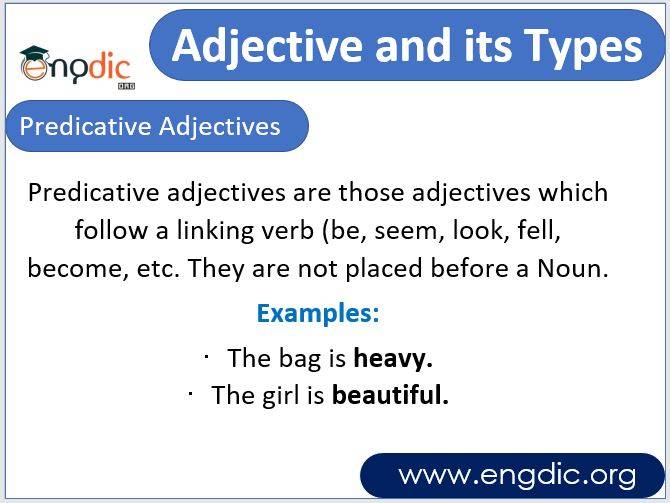
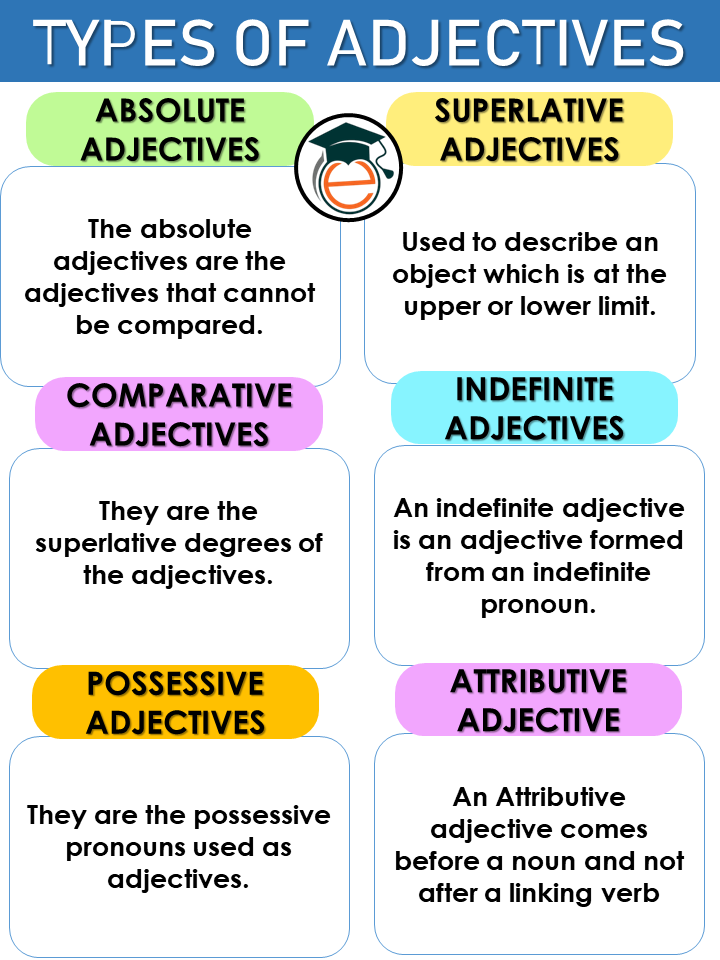
Download this lesson “Adjectives and its Types with Examples PDF” here.

